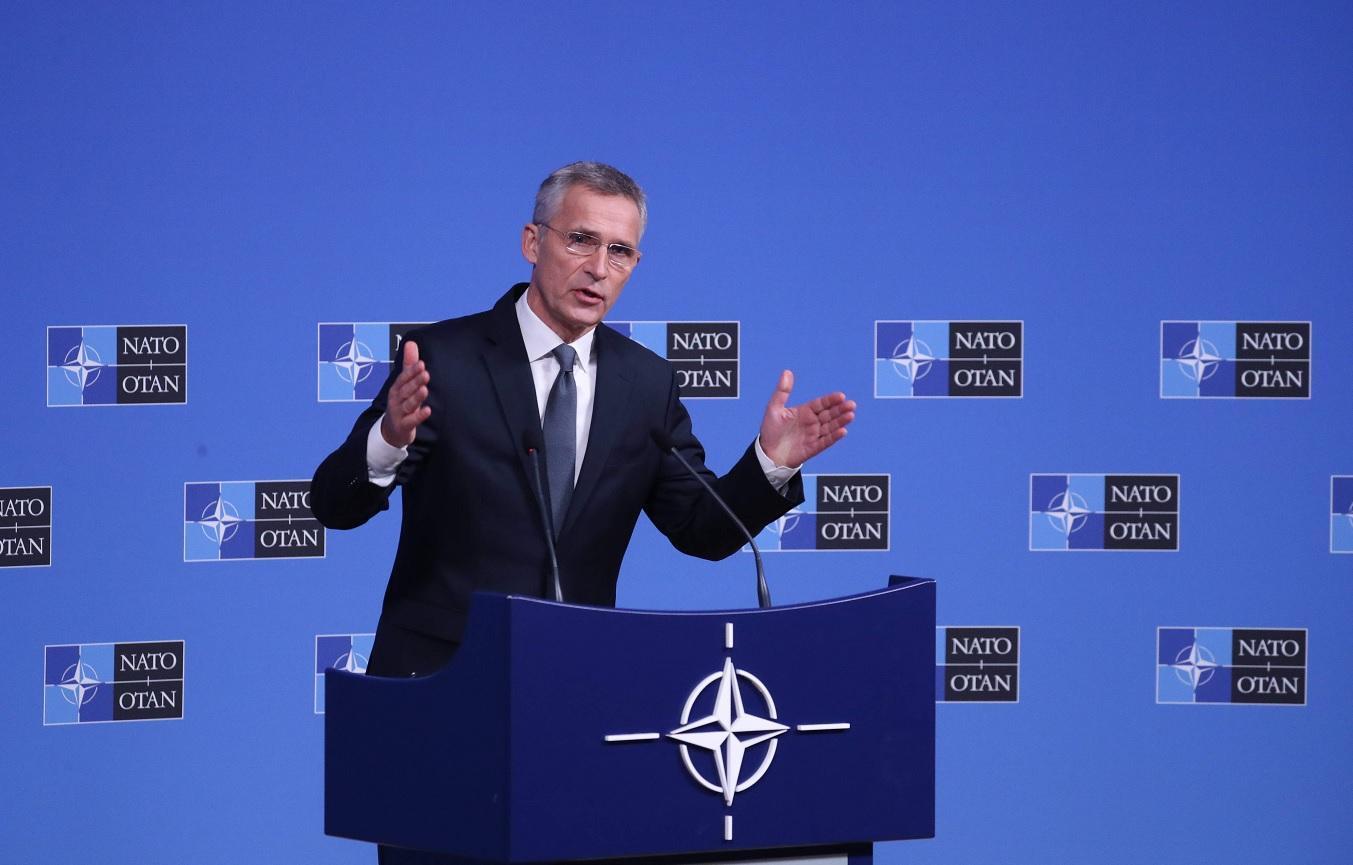
Turkey’s recent deals with the United States and Russia have encouraged NATO to seek a political solution to the Syrian turmoil, the secretary-general of the alliance has said.
The developments in northeastern Syria will be one of top issues allied defense ministers will discuss in Brussels on Oct. 24 and 25.
“I think what we have seen in the last days is encouraging because it shows it’s possible to move forward for a political solution in Syria,” NATO Secretary-General Jens Stoltenberg told a press conference in Brussels on Oct. 23 ahead of two-day-long defense ministerial meetings.
Stoltenberg was referring to Turkey’s agreements with the United States on Oct. 17 and Russia on Oct. 22 that paved the way for deescalation in northeastern Syria where Turkish troops had launched a unilateral military operation to wipe out the YPG from its borders.
The NATO chief highlighted the deal between Turkey and the U.S. as it led to a “significant reduction in the violence and the fighting” in that region. Turkey has announced that it halted its Operation Peace Spring inside the Syrian territories as the YPG has withdrawn from Tel Abyad and Ras’ul Ayn, an area designated as a safe zone by Turkey.
On a question about the Turkish-Russian deal that covers other parts of Syrian territories in northeastern Syria, Stoltenberg said “it was too early to judge the outcomes of the agreement” between the two nations.
The NATO chief, nevertheless, expressed his optimism that these developments would create necessary conditions for a potential political solution.
“The first requirement to reach a political solution is to stop violence, the fighting. And what we have seen is a significant reduction in violence, fighting. Then, we need to move on, building on that and have a negotiated political solution in Syria. I don’t say it’s easy, it’s extremely difficult, but we all need to do whatever necessary to let that happen,” he stressed.
Allies in disagreement on Syria
As he was recalled that many NATO countries, particularly the U.S. was opposed to the Turkish operation into Syria, the secretary-general reminded of his visit to Istanbul last week where he met with President Recep Tayyip Erdoğan and other Turkish leaders.
Stoltenberg stressed that he expressed his concerns about the Turkish move in his talks while recalling that Turkey has legitimate security concerns as a frontline country facing all the difficulties stemming from the years-long Syrian civil war.
“There are differences between the allies. It’s difficult when allies disagree,” he said, adding that the ministers will discuss these issues in an open and frank way during the talks in Brussels.
Stoltenberg did not answer a question on U.S. Secretary of Defense Mark Esper’s statement that Turkey should be held accountable for alleged war crimes committed by the Free Syrian Army during the Peace Spring Operation.
U.S. Ambassador to NATO, Kay Bailey Hutchinson, at a press conference on Oct 23, said that war crime allegations need to be investigated in a fair way and in line with international law.
Germany’s proposal welcomed by NATO
Another issue to be discussed by the NATO ministers will be a recent proposal by Germany to set up an internationally controlled safe zone in northeastern Syria.
Although the details of the proposal have not been revealed, the NATO chief said he welcomed the idea as it shows that the NATO countries are mulling ways to end the turmoil in Syria and reach a political solution.
Stoltenberg said he had spoken to German Defense Minister Annegret Kramp-Karrenbauer about her idea to create a security zone in northern Syria ahead of the ministerial meeting. Likewise, the U.S. ambassador to NATO also welcomed the proposal.
Origin countries should take back foreign fighters: US
The defense ministers will also review the latest on the fight against ISIL after the conditions have changed in east of Euphrates as a result of the Turkish operation. The YPG stopped fighting ISIL and released dozens of ISIL captives in the recent days, sparking concerns in the West about the return of the jihadist terror.
“The fight against ISIS is not over. They can come back,” urged Stoltenberg, calling on allied countries to focus on ways to avoid a resurgence of the terror group. Hutchinson, for her part, called on European countries to take back their foreign fighters, recalling that Washington has long been urging these countries to do so.